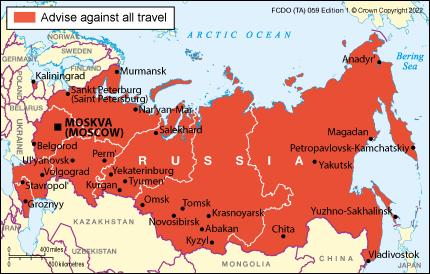In a provocative shift on the international stage, Russia has increasingly been accused of engaging in duplicitous tactics by signing global agreements only to subsequently undermine or abandon them. This pattern of behavior, characterized by experts as a calculated strategy to weaken international cooperation, has raised alarm among diplomatic circles worldwide. JAPAN Forward’s latest report delves into Moscow’s controversial approach to global pacts, exploring the implications of what critics are calling “back-stabbing” diplomacy and its impact on international stability.
Russia’s Strategy of Joining International Pacts to Undermine Global Alliances
Russia has adopted a calculated approach by strategically joining various international organizations and treaties, not to foster collaboration, but to exploit these platforms as leverage points for its geopolitical ambitions. Through this method, Moscow embeds itself within multilateral frameworks only to gradually erode their effectiveness and sow discord among member states. Tactics include withholding cooperation, exploiting procedural loopholes, and undermining consensus-building processes, which cumulatively weaken established alliances and pose systemic risks to global security architectures.
Key methods observed include:
- Influencing decision-making by aligning with opposing factions within the pacts.
- Disrupting communication channels to create mistrust between allies.
- Injecting misinformation under the guise of diplomatic engagement.
- Utilizing economic and political pressure to steer organizations away from collective action.
| International Pact | Russia’s Role | Impact on Global Alliances |
|---|---|---|
| Organization for Security and Co-operation in Europe (OSCE) | Veto power and procedural delays | Stalled conflict resolutions in Eastern Europe |
| Arms Trade Treaty (ATT) | Selective compliance and opacity | Compromised disarmament efforts |
| G20 Summit | Introducing divisive economic narratives | Weakening unified fiscal policies |
Analyzing the Impact of Russia’s Diplomatic Tactics on International Relations
Russia’s diplomatic approach in recent years has increasingly been characterized by a pattern of engaging with international agreements only to undermine or abandon them when convenient. This selective adherence not only disrupts the existing global order but also fosters a climate of mistrust among nations. For instance, Moscow’s maneuvers within organizations such as the OSCE and the INF Treaty have raised alarms about the consistency and reliability of its commitments. Such tactics complicate multilateral efforts aimed at promoting security and stability, forcing partner countries to adopt more guarded and sometimes retaliatory strategies.
Key consequences of Russia’s diplomatic behavior include:
- Strained alliances: Traditional partners hesitate to deepen ties, fearing unreliable cooperation.
- Fragmentation of pacts: International frameworks face erosion as members question collective enforcement.
- Geopolitical uncertainty: Global actors recalibrate policies to hedge against unpredictable shifts.
| Diplomatic Pact | Russia’s Action | Impact on Relations |
|---|---|---|
| INF Treaty | Suspended Participation | Triggered arms race concerns |
| OSCE Agreements | Conditional Compliance | Weakened monitoring mechanisms |
| New START | Threatened Withdrawal | Increased nuclear tensions |
The cumulative effect of these tactics is a diplomatic environment where trust deficits increase, leading to an erosion of collaborative norms. As nations grapple with this reality, international relations are becoming more transactional, unpredictable, and fraught with the risk of escalation. Russia’s approach thus not only hampers peace initiatives but also threatens the long-term viability of global governance structures.
Policy Recommendations for Strengthening Pact Integrity Against Covert Subversion
To counteract covert subversion tactics employed by destabilizing actors, there must be a robust framework that prioritizes transparency and accountability within international pacts. Strengthening intelligence-sharing mechanisms among member states is crucial, allowing for timely identification of infiltration attempts or manipulative behaviors. Additionally, the establishment of independent oversight bodies with investigative authority can serve as a powerful deterrent, ensuring that any breaches of agreement terms are swiftly exposed and addressed. These measures will help safeguard the pact’s foundational trust and deter actors bent on exploiting loopholes for strategic gain.
Key strategies to enhance pact integrity include:
- Regular Security Audits: Conducting periodic evaluations of member compliance to detect anomalies or covert activities early on.
- Enhanced Vetting Processes: Applying stringent background checks on representatives and affiliated entities to minimize infiltration risks.
- Rapid Response Protocols: Creating clear, actionable steps for expelling or sanctioning violators without prolonged bureaucratic delays.
- Public Transparency Reports: Publishing verified findings on pact health to maintain public awareness and international confidence.
| Measure | Purpose | Expected Outcome |
|---|---|---|
| Intelligence-Sharing | Early detection of subversive actions | Reduced infiltration risk |
| Independent Oversight | Objective investigation of violations | Swift accountability |
| Security Audits | Regular compliance check | Increased transparency |
| Rapid Response | Immediate sanctioning of offenders | Deterrence of bad actors |
In Summary
As Russia continues to engage in international agreements only to subsequently undermine them, global observers are increasingly concerned about the erosion of trust in diplomatic processes. Japan’s recent criticisms underscore a broader challenge facing the international community: ensuring that commitments are honored in an era marked by strategic opportunism. The developments highlighted by JAPAN Forward serve as a stark reminder that vigilance and accountability remain essential in maintaining the integrity of global pacts.




